10 Thyroid Supplements to Help Support and Improve Your Thyroid Health
In our new featured article, the team behind the popular thyroid supplement, Thyromate, explore how supplements of certain amino acids, minerals, herbs, and vitamins can help improve thyroid health and make symptoms feel more manageable.
Read more to see which thyroid supplements our team of experts recommends taking.

Thyroid Supplements Introduction
As many Thyroid advocates and experts will know, although the average thyroid patient may not, the prescription rate of levothyroxine, or Synthroid – the most common method of treating hypothyroidism (an underactive thyroid) – has been growing rapidly for the past decade.
It has been growing so quickly that, according to Medscape, for the past 5 years, the most commonly prescribed medication in the United States has been levothyroxine.
Whether you believe this is for the better, or for the worse, depends on who you ask – and some have a lot of stronger opinions on this than others! Regardless, the trend seem to be that whenever normal thyroid levels are out of their reference ranges, doctors almost always end up prescribing levothyroxine to treat the issue.
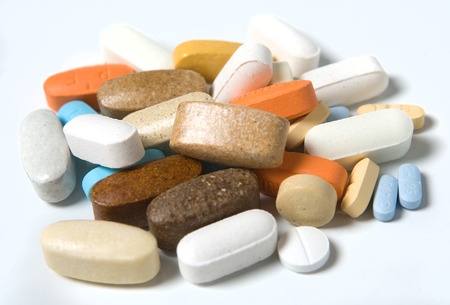
Unfortunately, this does not always end up fixing the multitude of unsatisfactory, making-my-life-a-miserable-mess, symptoms of hypothyroidism or Hashimoto’s disease or even the root cause for many patients.
This is where thyroid supplements can come in. Research has shown that thyroid supplements can help get thyroid hormones back into reference ranges, support healthy thyroid function and naturally maintain increased energy levels for those who are deficient in certain nutrients, and target the root cause of what may be your thyroid disorder.
Many patients have turned to natural thyroid support supplements as a way of improving their thyroid health or supplementing with their existing medications (although we always recommend checking with your doctor first before doing this.)
However, similar to thyroid medications, not all over-the-counter (OTC) thyroid supplements have been proven to be safe, as some may contain actual thyroid hormones.

We often get asked: Can these thyroid supplements really help? And if so, exactly which thyroid supplements?
In this article we try to answer these questions by exploring 10 supplements that have been shown to help support a healthy thyroid. All 10 of these supplements have been featured in our highly rated thyroid supplement, Thyromate.
While it is possible to find each supplement individually, most prefer taking the supplements from a single trusted source. Feel free to learn more about this thyroid supplement by exploring our website and blog.
Here are 10 thyroid supplements to help naturally support thyroid health and function.
Top Supplements for Thyroid Health
Zinc

This crucial trace mineral is one of many essential nutrients our body requires on a daily basis.
While it is known that Zinc primarily protects the immune system by fighting off various harmful cells, this mineral has also been studied for other medical concerns as well. This includes thyroid health.
Various studies have found a very tight connection between zinc intake and thyroid synthesis. The research has proven that proper zinc levels not only prevent underactive thyroid disorder (Hypothyroidism), but they also maintain proper thyroid production and function.
A clear example of this amazing find would be the cross-national study conducted in 2013 by the International Journal of Trichology.
This study included female participants with zinc deficiency, low thyroid production, skin problems, hair loss, and even a lack of appetite and depression. During the research participants were supplemented with zinc for one month, and the results in the end were truly shocking.
A noticeable positive change in thyroid health was found, skin and hair problems were resolved, and even an improvement in depression has been noted. (1)
Food sources rich in zinc include red meat, shellfish’s, whole eggs, wild-caught salmon, legumes, pumpkin and walnut seeds as well as spinach and beans.
Magnesium
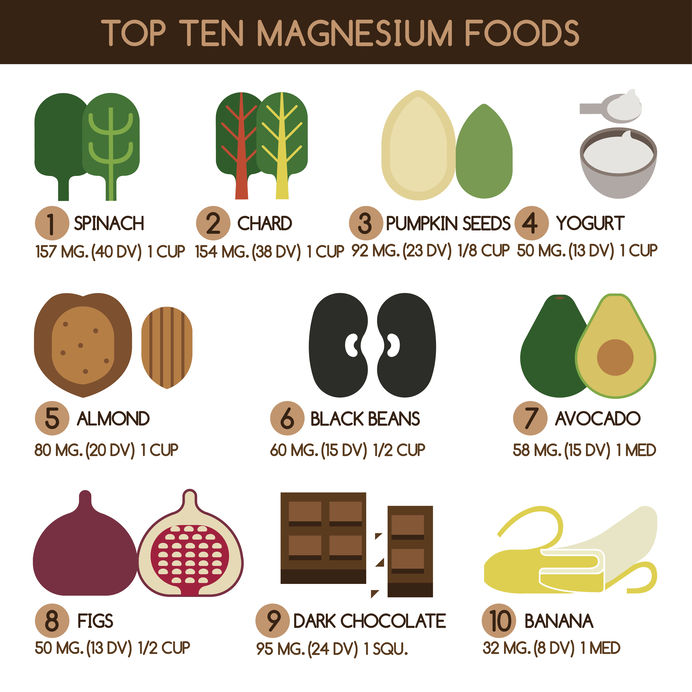 All of the nutrients our body needs for optimal health are extremely important.
All of the nutrients our body needs for optimal health are extremely important.
But if we would prioritize the significance of each mineral separately, magnesium is definitely going to be on the top of the list. This vital mineral plays a central role in hundreds of reactions inside our body, including:
- Protein synthesis: Helps in the creation of new proteins from amino acids.
- Energy creation: Converts food into usable energy.
- DNA and RNA synthesis: Aids in the creation and maintenance of DNA and RNA.
- Helps with muscle movement: Has a decisive role in muscle contraction and relaxation.
- Nervous system regulation: Regulates neurotransmitters which are the building blocks of our brain and nervous system.
Besides this, magnesium is also vitally imperative for thyroid health. This mineral is actually responsible for essential conversions of the inactive T4 thyroid hormone into the active form of T3. The true importance of this process is extremely high since the metabolism of our body cells is enhanced through the T3 hormone. (2)
Selenium
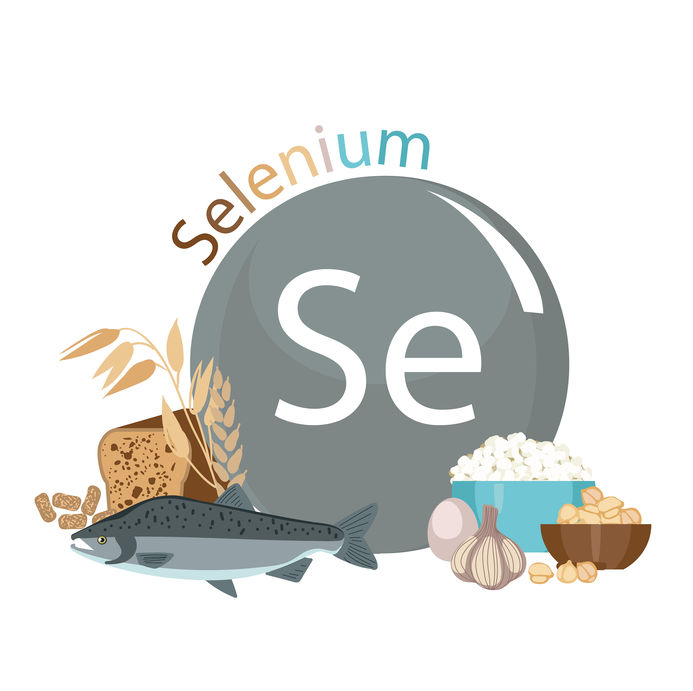
Even though you may have never heard of selenium, this extraordinary nutrient is vital for our health. Its most prominent role is definitely the conversion of T4 hormones into T3, which we had discussed previously. This essential mineral is also critical for the maintenance of enzyme 5-deiodianse which aids in the T4-T3 conversion and metabolism function. (3)
To see how significant this nutrient really is, we only have to look at the latest research. Studies prove that deficiency is mostly associated with a weak immune system, autoimmune disease, Hashimoto’s thyroiditis and even hypothyroidism.
By restoring the proper selenium levels through diet and supplementation, individuals from the latest studies managed to improve their hormone levels, metabolism, inflammation and overall thyroid health. (4)
Selenium rich foods include Brazil nuts, sardines, turkey, chicken and eggs.
L-Tyrosine
Represents a fundamental amino acid that is naturally produced in our body. It is said to induce highly important brain chemicals that help with nerve cell communication and mood regulation.
In addition, L-Tyrosine provides a structural foundation for thyroid hormones. Low levels of this important amino acid were directly linked to a reduction in thyroid production, as well as in CNS (Central nervous system) and dopamine.
Research has also found that pairing stress and low levels of L-Tyrosine may lead to not only problems in hormone production, but also in serious cognitive dysfunction.
It is also useful to mention that clinical studies discovered that patients with low thyroid hormones which supplemented with L-Tyrosine experienced an improvement in overall health. (5)
Vitamin B12
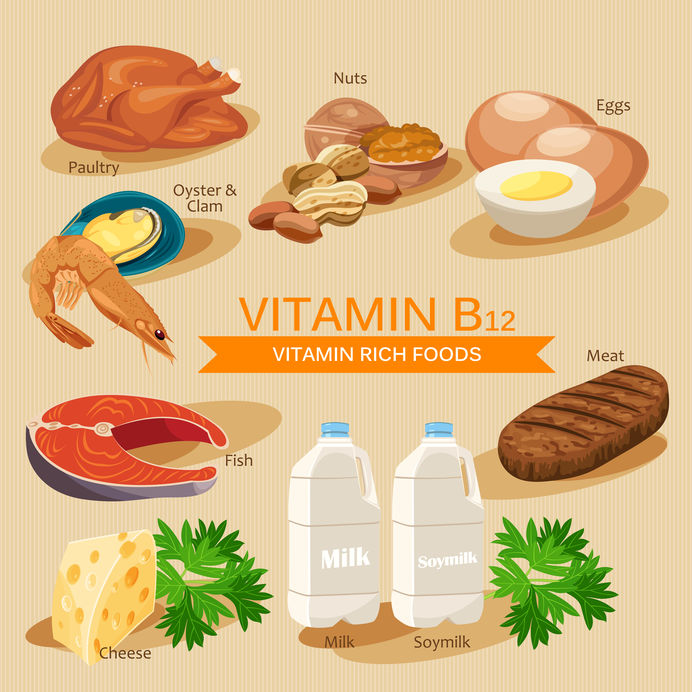 Also known as cobalamin, a crucial vitamin that our body unfortunately cannot produce naturally. Vitamin B12 has many roles in our organism, including its ability to help with the production of red blood cells, DNA synthesis, bone health and most importantly it has the property to maintain proper thyroid production.
Also known as cobalamin, a crucial vitamin that our body unfortunately cannot produce naturally. Vitamin B12 has many roles in our organism, including its ability to help with the production of red blood cells, DNA synthesis, bone health and most importantly it has the property to maintain proper thyroid production.
Studies have proven that increased amounts of Vitamin B12 intake can reduce symptoms associated with various thyroid problems, including thyroiditis, postpartum thyroiditis and hypothyroidism. (6)
Most people suffer from a Vitamin B12 deficiency, and for this reason it is imperative to consume foods rich in this vitamin, such as beef, sardines, tuna, fortified cereal and trout. A Vitamin B12 supplement is also a good option.
Copper
Another essential mineral that improves and maintains proper metabolic function, promotes stronger and healthier bones and also ensures that our nervous system works accordingly. Paired with zinc, copper is crucial for the health of the thyroid gland.
Research has shown that the T3 and T4 levels of thyroid hormones are closely linked to copper levels.
With a deficiency in this mineral, thyroid hormone production will fall. And as an outcome the thyroid gland may not function properly, causing a range of health problems. (7)
For this reason, it is necessary for us to consume copper rich foods, such as oysters, shiitake mushrooms, various nuts and seeds, lobster, green leafy vegetables, organic meat and dark chocolate.
Manganese
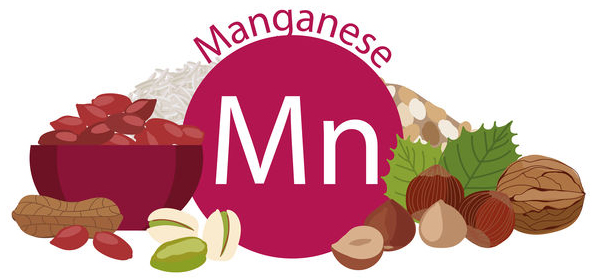
Although our body only requires small amounts of this valuable trace mineral, manganese still has a crucial role in our complex system. Besides its amazing properties that maintain normal cognition, bone health, blood sugar levels and proper metabolic function, manganese has one particularly important role. This role would be the production of T3 and T4 thyroid hormones.
We learned about the vitality of these hormones previously, and with a deficiency in manganese these hormones cannot be produced.
Manganese is needed for the creation of a special antioxidant enzyme called superoxide dismutase (MnSOD), a key component of the thyroid hormone production. Without this enzyme our body is not capable to maintain appropriate thyroid health. (8) (9)
The recommended daily intake of manganese is approximately 2mg per day, and foods that are rich in this mineral include oatmeal, beans, legumes, different fruits, brown rice, whole wheat bread and spinach.
Molybdenum
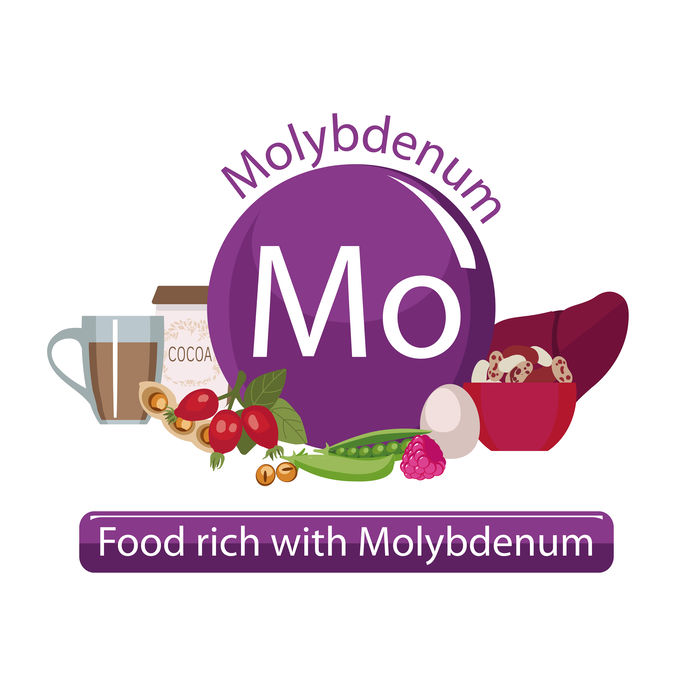
While it may not be as well recognized as other nutrients, molybdenum still has a beneficial impact on a myriad of biological functions. Even though all live forms on our planet need molybdenum, the human body only requires just a small amount, and therefore deficiencies in this nutrient are quite rare.
As far as its properties go, molybdenum aids in the creation of vital enzymes that our body uses to fight of inflammation, autoimmune diseases and harmful radicals. Molybdenum is also crucial for thyroid functioning. The molybdenum-dependent enzymes work in the oxidative system of the thyroid epithelial cells known as thyrocytes, which play a central role in the release of the T3 hormones. Research also shows that molybdenum deficiencies can in fact negatively affect not only thyroid, but overall health as well. (10)
The recommended daily intake of molybdenum is only 45 micrograms a day. Great source of this nutrient includes dairy, beans and other legumes, almonds, cashew nuts, chestnuts, eggs, leafy vegetables, whole grains and organic meat liver.
Ashwagandha
Coming from the ancient Ayurvedic medicine, ashwagandha is said to be a magical herb that is able to treat various conditions. Also known by the name of Indian ginseng or winter cherry, this herb is considered to successfully treat arthritis, constipation, insomnia, skin conditions, stress, diabetes, fever and most importantly thyroid problems.

Animal studies have found that this ancient herb increased circulating levels of T4 hormones with no influence on T3, meaning that it may induce great benefits for people with hypothyroidism. Other human studies have concluded that ashwagandha increases both T3 and T4 hormones, although they have not found a clear explanation to why this occurred.
Despite the fact that more research has to be done, we can in fact say that ashwagandha has considerable thyroid benefits. (11) (12)
The optimal daily dose of ashwagandha is yet to be established, however a 300-500mg one could be considered as appropriate.
Iodine
Iodine is an essential mineral commonly found in seafood and dairy products. Similar to other minerals, iodine has also a wide specter of health benefits. However, its utmost prominent property would be its direct correlation with thyroid production and function.
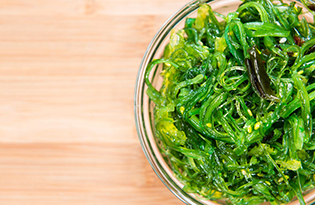 Iodine is the paramount factor of thyroid hormone health; the only problem is that our body doesn’t produce this mineral naturally.
Iodine is the paramount factor of thyroid hormone health; the only problem is that our body doesn’t produce this mineral naturally.
To help you better understand the true importance of this mineral, we have to closely look at its health role. Thyroid T3 and T4 hormone production and function is directly dependent on the presence of the iodine mineral. But, the balance of iodine in the body is also critical as both deficiencies and excess iodine levels can induce thyroid dysfunction.
Because of this, it is vitally imperative to consume optimal levels of iodine. Research suggests that a dose of 200 micrograms is recommended for both genders. Good sources of iodine include bananas, cod, green leafy vegetables, cheese, tuna, raw milk and yoghurt.
However, if you have Hashimoto’s disease, it is often recommended that you do not take supplements with Iodine, as this could further aggravate the symptoms of Hashimoto’s or in other words, cause a flare up. (13)
References
Ambooken Betsy, MP Binitha, and S Sarita. “Zinc Deficiency Associated with Hypothyroidism: An Overlooked Cause of Severe Alopecia.” Int J Trichology. 2013 Jan-Mar. Viewed at: https://www.ncbi.nlm.nih.gov/pmc/articles/PMC3746228/
Hsu JM, Root AW, Duckett GE, Smith JC Jr, Yunice AA, Kepford G. “The effect of magnesium depletion on thyroid function in rats.” J Nutr. 1984 Aug. Viewed at: https://www.ncbi.nlm.nih.gov/pubmed/6747732
Chadio SE, Kotsampasi BM, Menegatos JG, Zervas GP, Kalogiannis DG. “Effect of selenium supplementation on thyroid hormone levels and selenoenzyme activities in growing lambs.” Biol Trace Elem Res. 2006 Feb. Viewed at: https://www.ncbi.nlm.nih.gov/pubmed/16444004
Yaofu Fan, Shuhang Xu, Huifeng Zhang, Wen Cao, Kun Wang, Guofang Chen, Hongjie Di, Meng Cao, and Chao Liu. “Selenium Supplementation for Autoimmune Thyroiditis: A Systematic Review and Meta-Analysis.” Int J Endocrinol. 2014. Viewed at: https://www.ncbi.nlm.nih.gov/pmc/articles/PMC4276677/
Daniela Metro, Valeria Cernaro, Mattia Papa, and Salvatore Benvenga. “Marked improvement of thyroid function and autoimmunity by Aloe barbadensis miller juice in patients with subclinical hypothyroidism.” J Clin Transl Endocrinol. 2018 Mar. Viewed at: https://www.ncbi.nlm.nih.gov/pmc/articles/PMC5842288/
Jabbar A, Yawar A, Waseem S, Islam N, Ul Haque N, Zuberi L, Khan A, Akhter J. “Vitamin B12 deficiency common in primary hypothyroidism.” J Pak Med Assoc. 2008 May. Viewed at: https://www.ncbi.nlm.nih.gov/pubmed/18655403
Blasig S, Kühnen P, Schuette A, Blankenstein O, Mittag J, Schomburg L. “Positive correlation of thyroid hormones and serum copper in children with congenital hypothyroidism.” J Trace Elem Med Biol. 2016 Sep. Viewed at: https://www.ncbi.nlm.nih.gov/pubmed/27267969
OP Soldin and M Aschner. “EFFECTS OF MANGANESE ON THYROID HORMONE HOMEOSTASIS.” Neurotoxicology. 2007 Sep. Viewed at: https://www.ncbi.nlm.nih.gov/pmc/articles/PMC2067987/
Eder K, Kralik A, Kirchgessner M. “The effect of manganese supply on thyroid hormone metabolism in the offspring of manganese-depleted dams.” Biol Trace Elem Res. 1996 Oct-Nov. Viewed at: https://www.ncbi.nlm.nih.gov/pubmed/8971361
Klaudia Brix, Dagmar Führer, and Heike Biebermann. “Molecules important for thyroid hormone synthesis and action - known facts and future perspectives.” Thyroid Res. 2011. Viewed at: https://www.ncbi.nlm.nih.gov/pmc/articles/PMC3155115/
Sharma AK, Basu I, Singh S. “Efficacy and Safety of Ashwagandha Root Extract in Subclinical Hypothyroid Patients: A Double-Blind, Randomized Placebo-Controlled Trial.” J Altern Complement Med. 2018 Mar. Viewed at: https://www.ncbi.nlm.nih.gov/pubmed/28829155
Panda S, Kar A. “Changes in thyroid hormone concentrations after administration of ashwagandha root extract to adult male mice.” J Pharm Pharmacol. 1998 Sep. Viewed at: https://www.ncbi.nlm.nih.gov/pubmed/9811169
Hye Rim Chung, MD. “Iodine and thyroid function.” Ann Pediatr Endocrinol Metab. 2014 Mar. Viewed at: https://www.ncbi.nlm.nih.gov/pmc/articles/PMC4049553
/
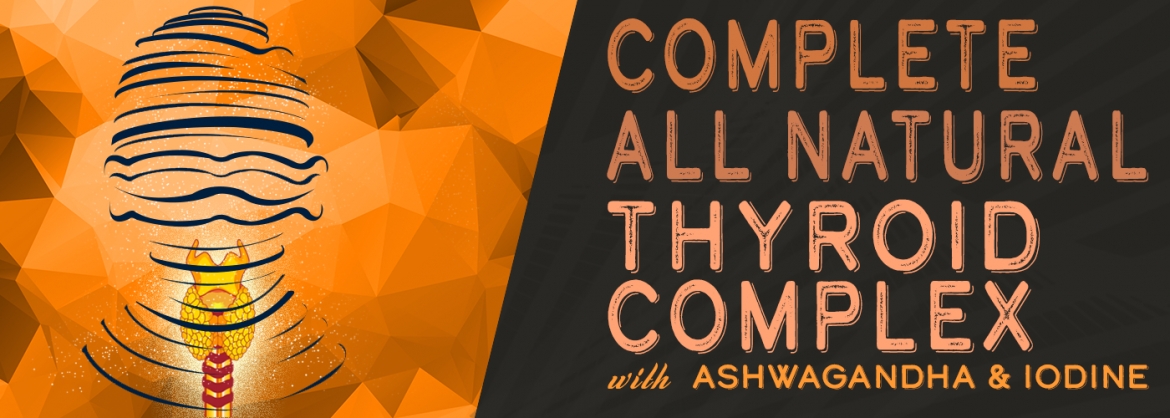











































































Leave a comment